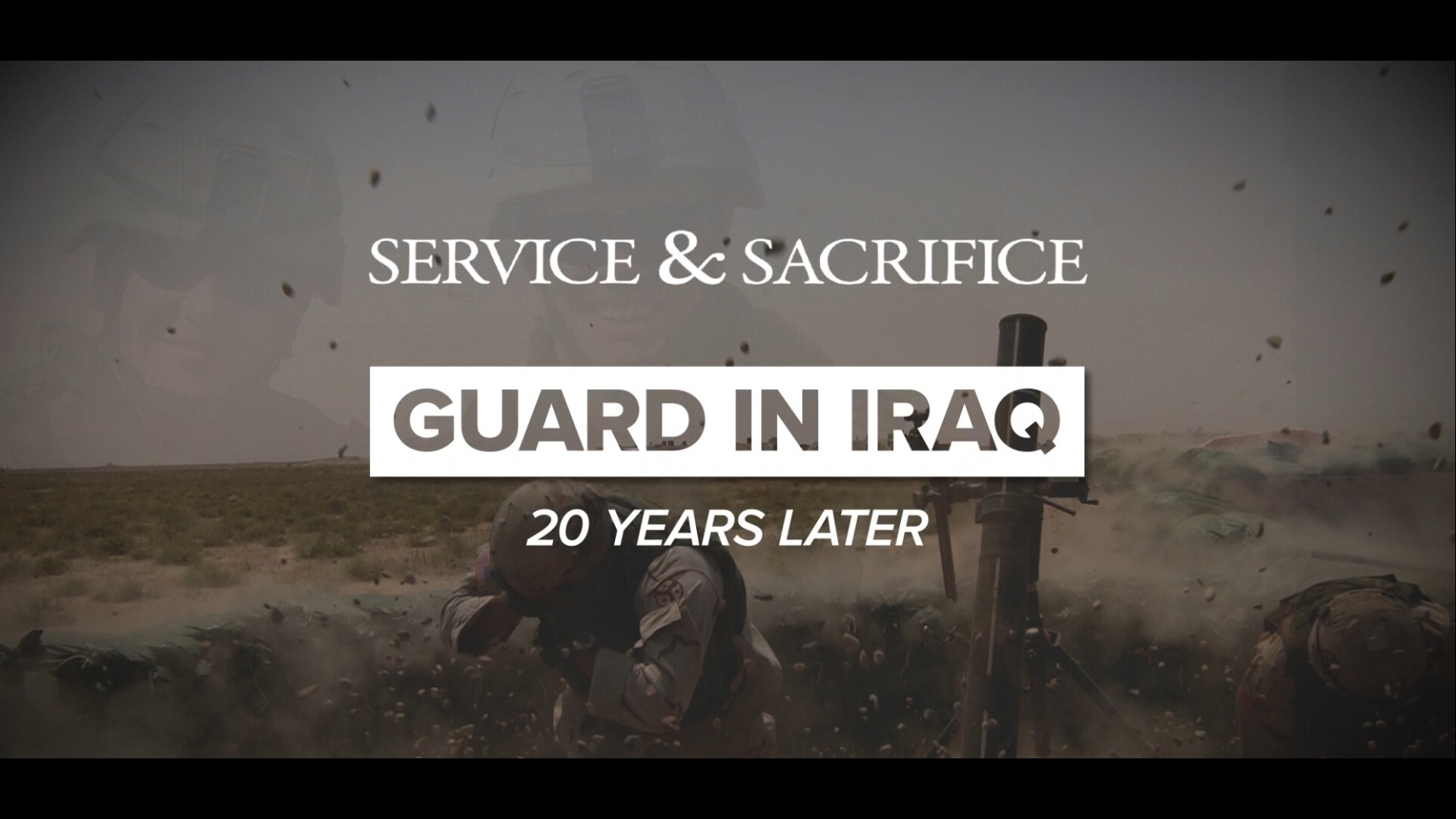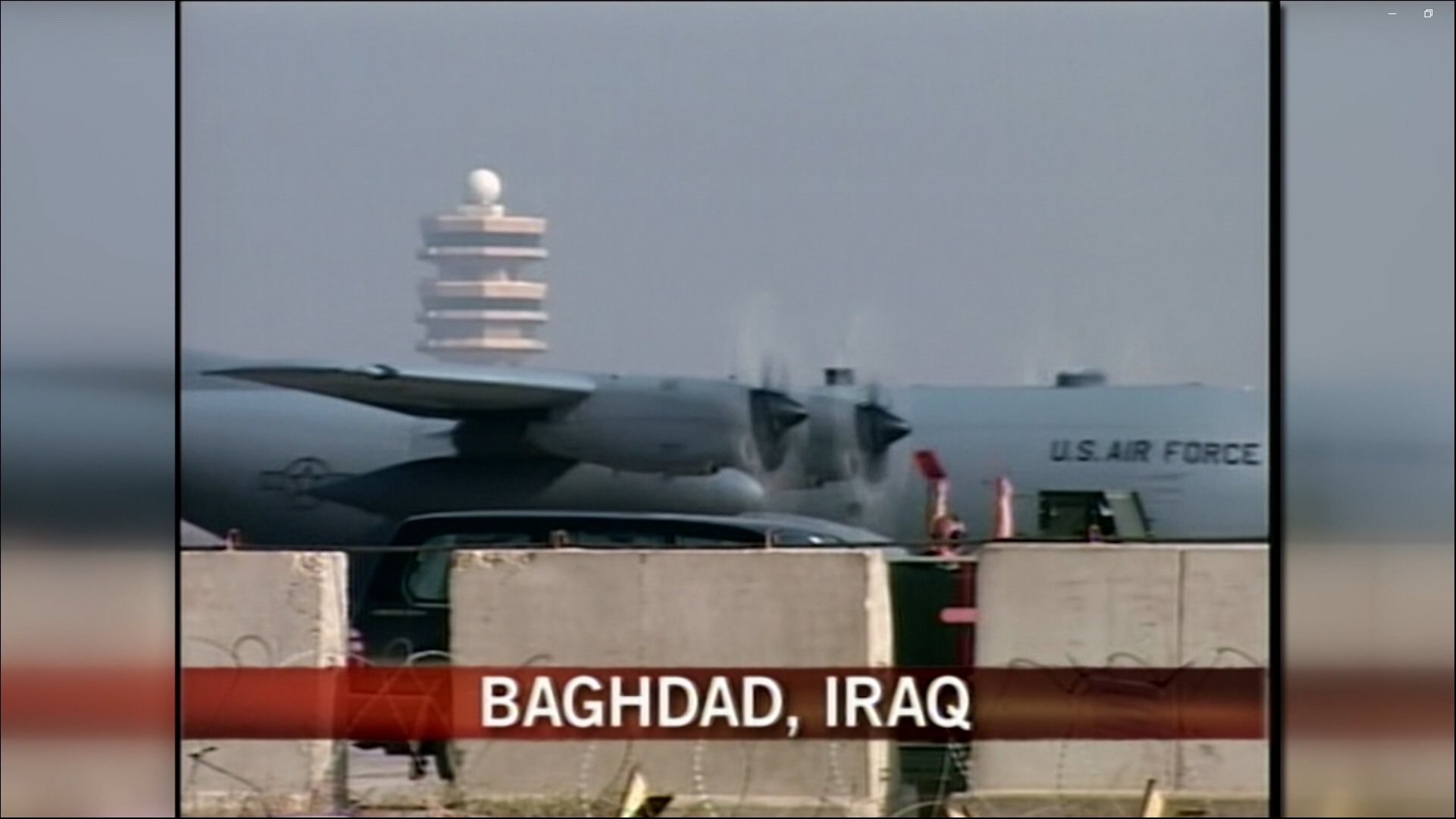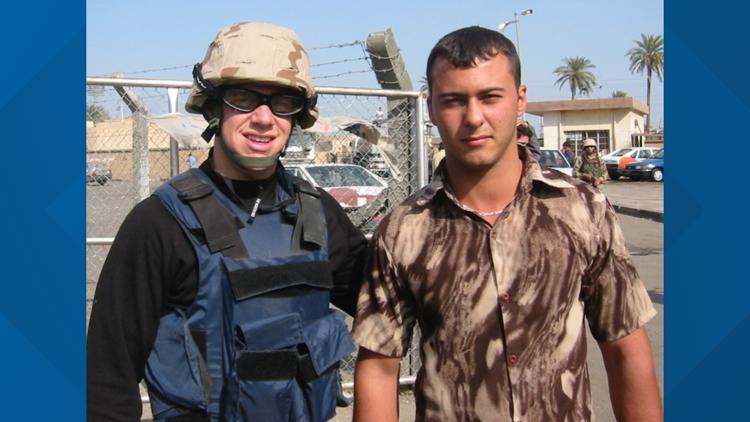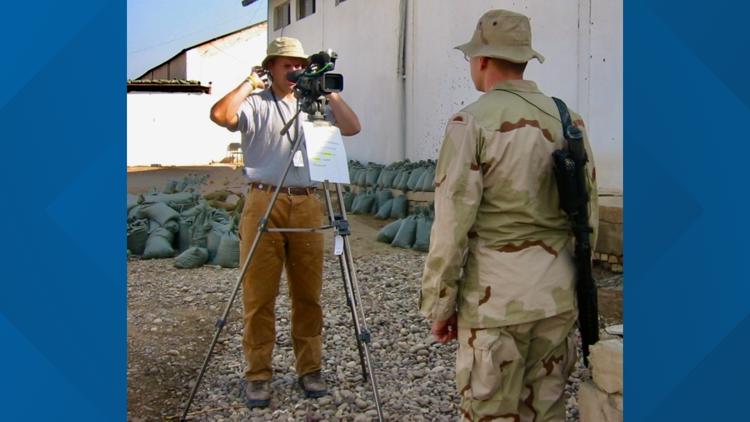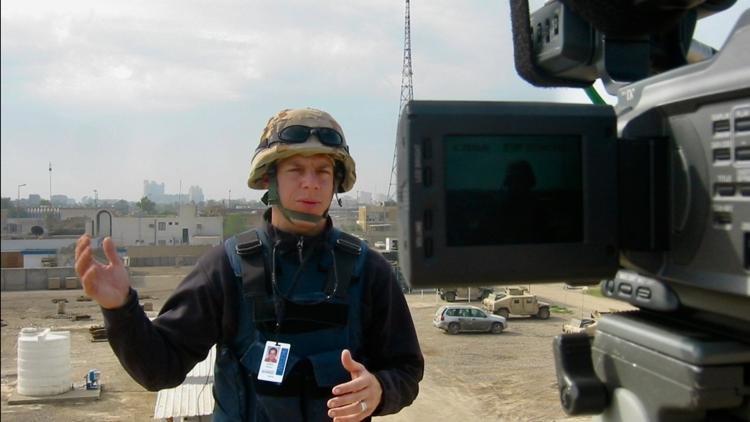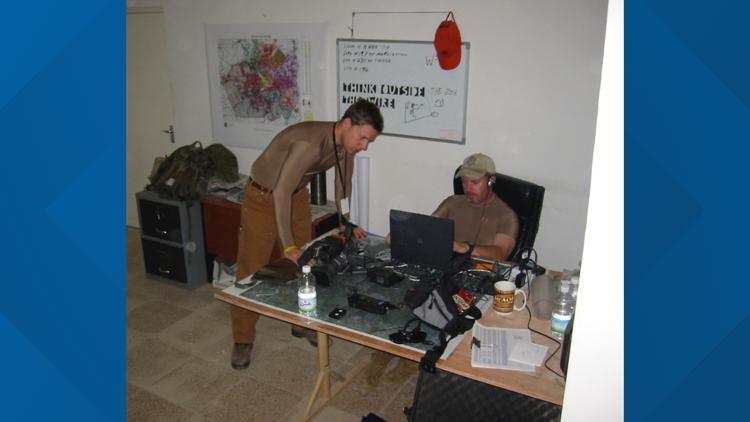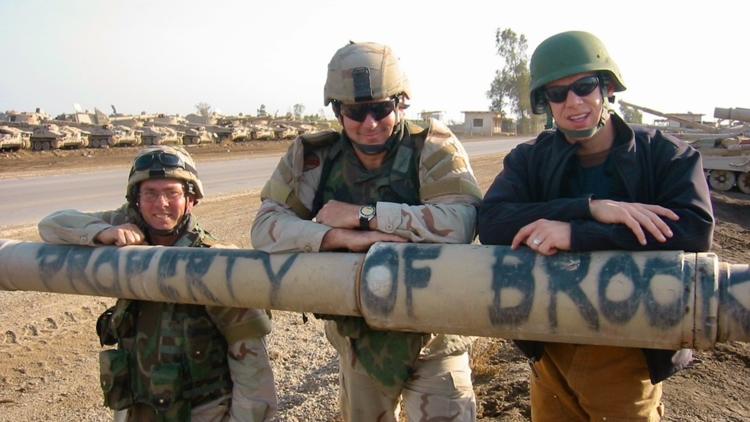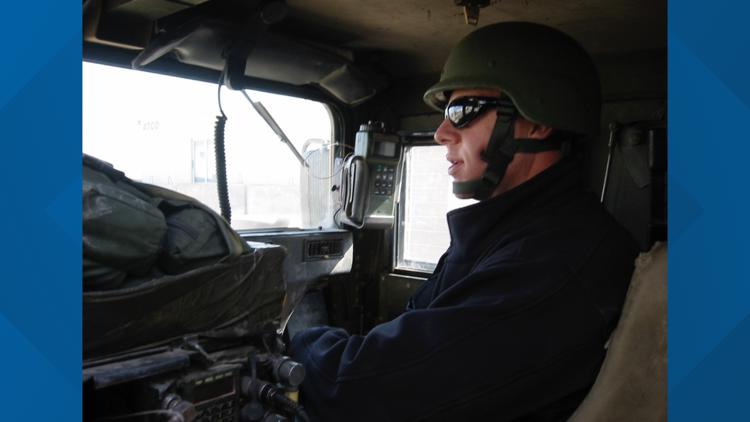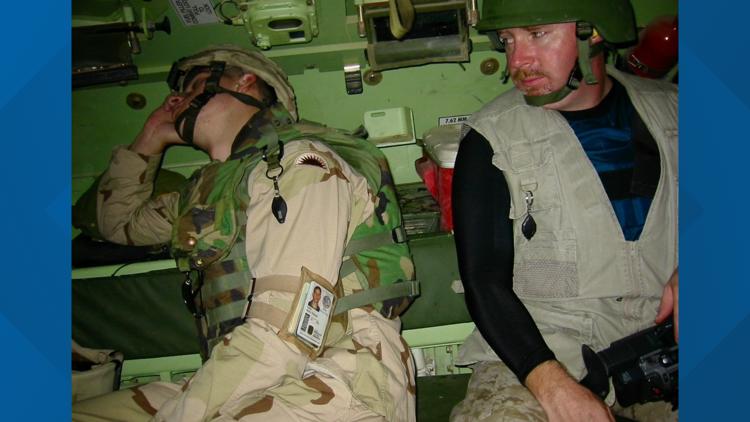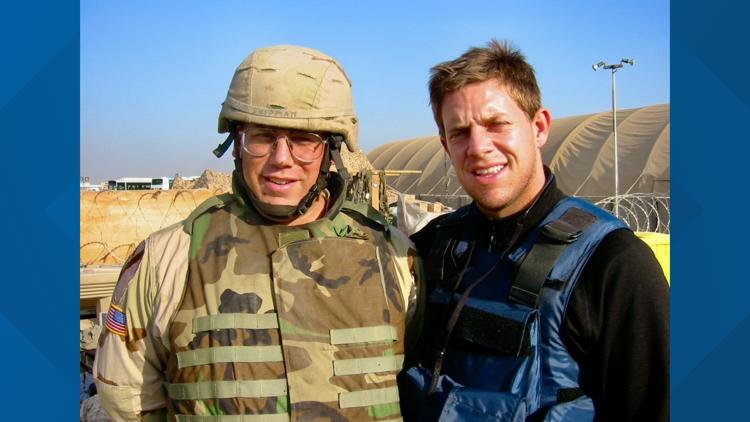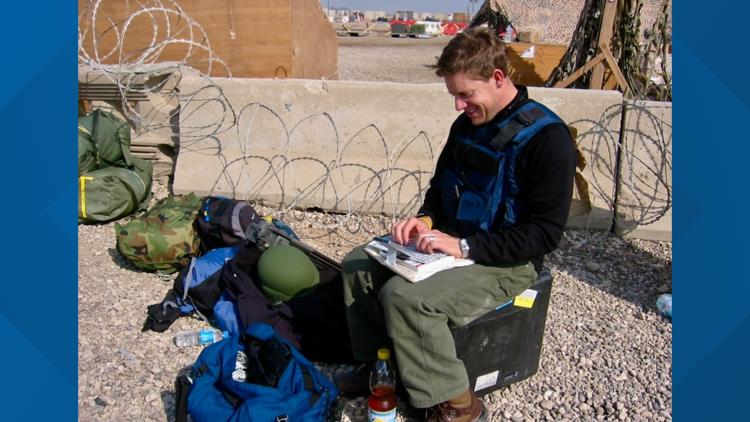Service & Sacrifice: Guard in Iraq, 20 years later
“They were ferocious, courageous and incredibly generous to people and tried to make things better," said Vince Jacques, a 2004 National Guard Iraq War veteran.
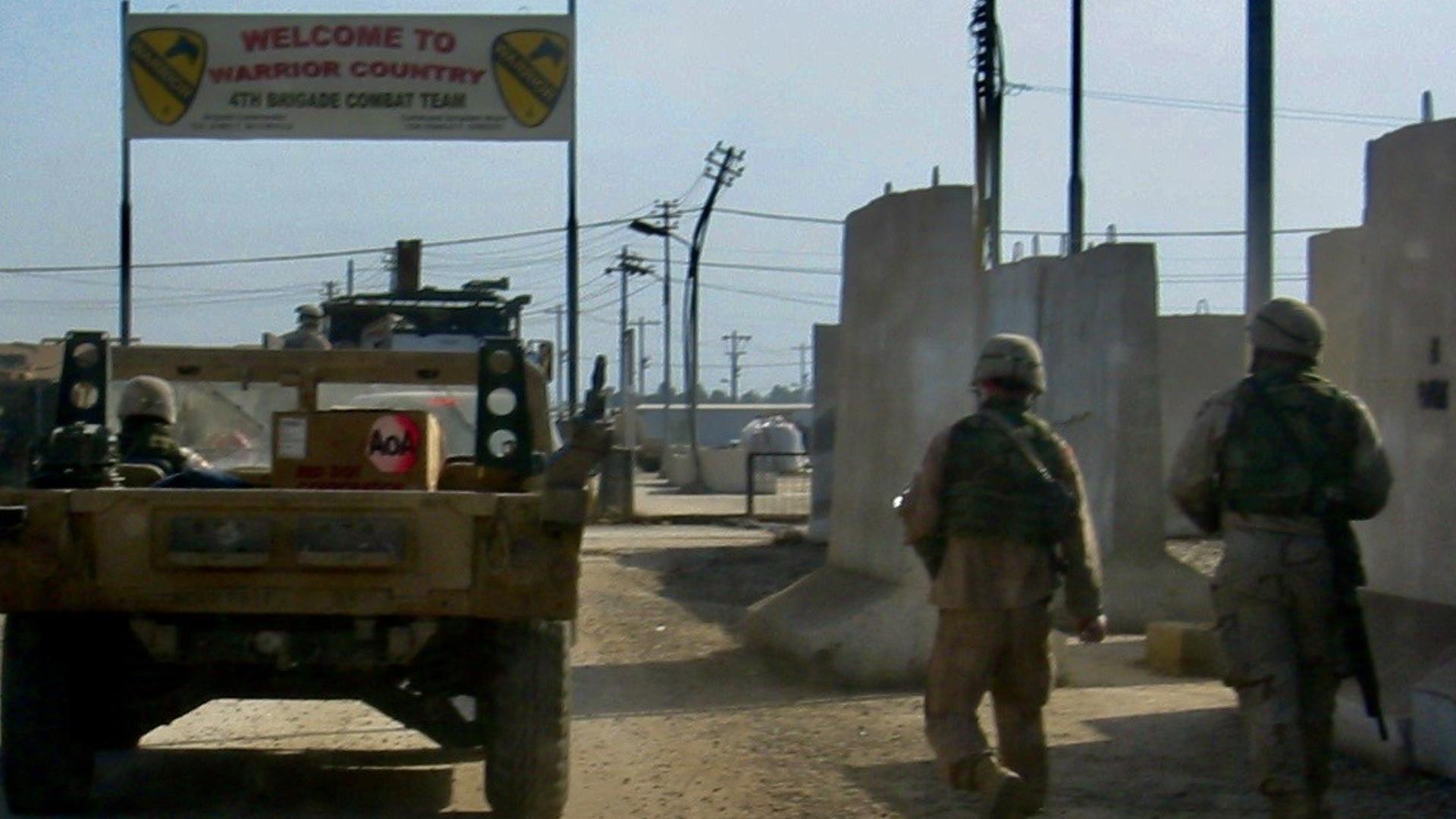
This 2024 documentary collaboration between WBIR-TV and KGW-TV revisits citizen soldiers we first met two decades ago in training and subsequently embedded with during their deployment to the war in Iraq.
2004 marked a signature moment in the history of the National Guard ushering onto the field of battle the largest call-up of citizen soldiers since World War II. Twenty years ago, troops from guard units based in Tennessee and Oregon proved symbolic of the burden assumed by those volunteers to fight insurgents and help rebuild a fractured country.
Train
“2004 was very chaotic,” said Terry “Max” Haston, retired Major General and Iraq War veteran
The National Guard formed the original fighting backbone of America taking the form of citizen militias. The modern-day citizen soldiers and airmen of the National Guard represent a diverse mix of ages and experiences. In addition to pledging their life in service to the country, most of those troops held day jobs outside the military. They are accountants, lawyers, and first responders. In the historic 2004 deployment to the war in Iraq, they ranged in age from teenagers to veterans in their 60s.

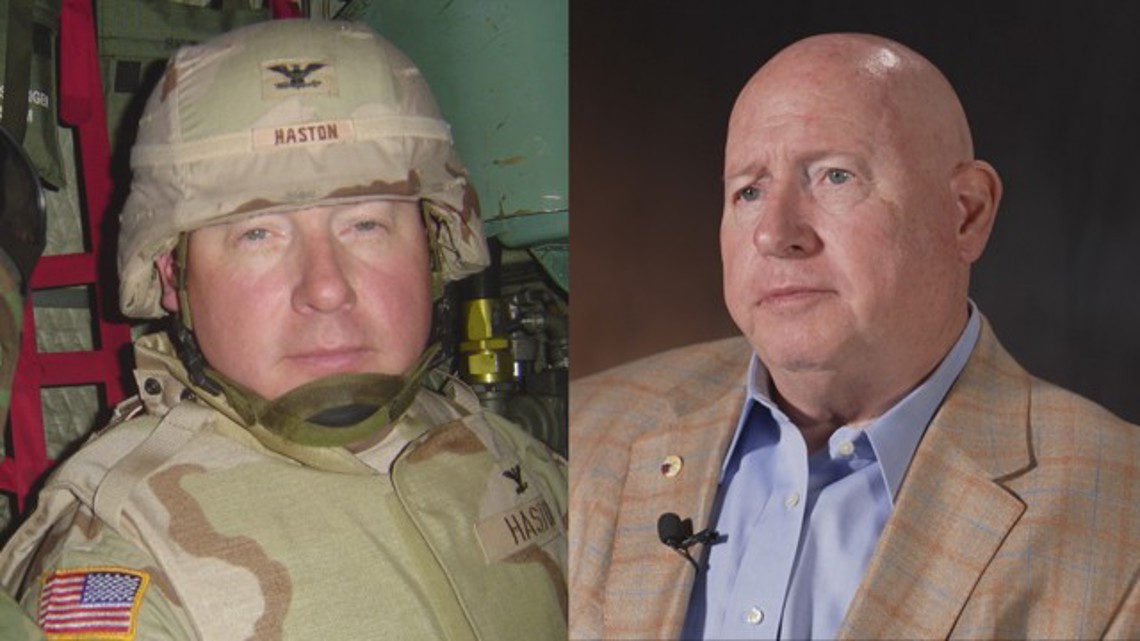
“I was actually a full-time student at that time. I was working on my undergraduate in youth ministry and preaching,” said Iraq War veteran Bart Wilt. We first connected with him in 2004 at a bed and breakfast in Hattiesburg, Mississippi reading bible passages with his wife during short breaks from training before his first combat deployment. The mechanic-turned-soldier then offered this window into his mindset just before heading overseas.
“It’s time to go for it and just get it done,” said Wilt, who was 26 years old in 2004 deployment with the 278th Armored Cavalry Regiment of the Tennessee National Guard.
Flash forward 20 years to the husband and now father of four, he offered this reflection on his first war deployment.
“We had the negative of losing soldiers but we also had positives, silver linings of building close and deeper friendships,” said Wilt, who remains in the military achieving his dream of serving in the Army Chaplain Corps.
“Best day, when we saw an Iraqi interpreter get baptized, that was pretty phenomenal,” said Wilt, who was among the hundreds of Tennessee National Guard members in the 278th Armored Calvary Regiment who deployed to Iraq in 2004.

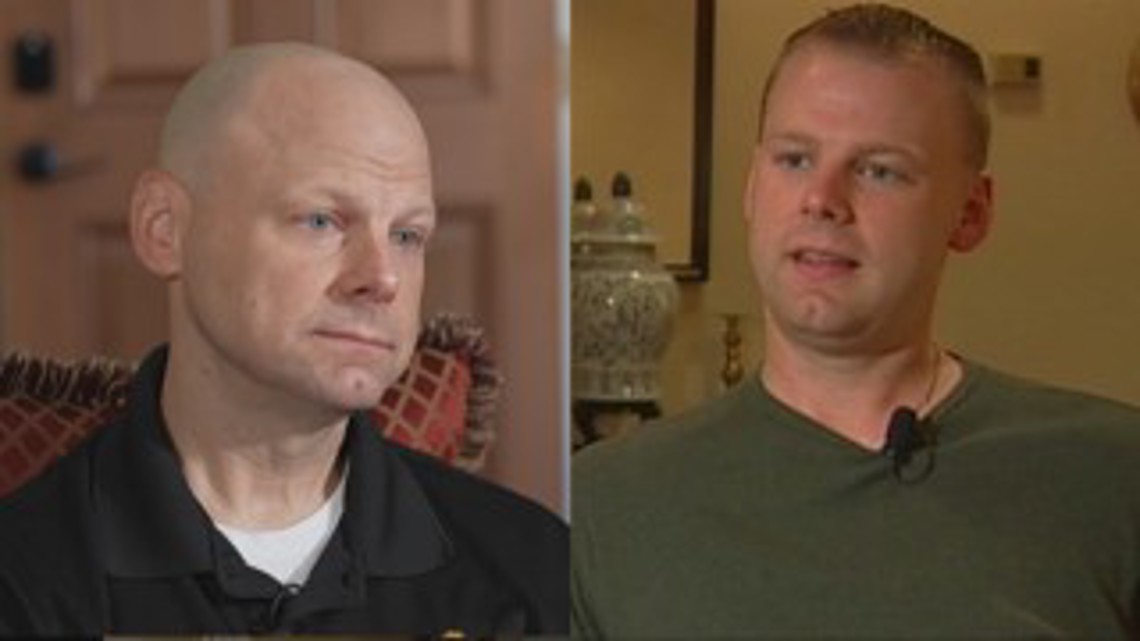
Deploy
“Our job was to get two companies of (Iraqi) infantry soldiers ready for the elections in January,” said Jerry Glesmann, National Guard Iraq War veteran.

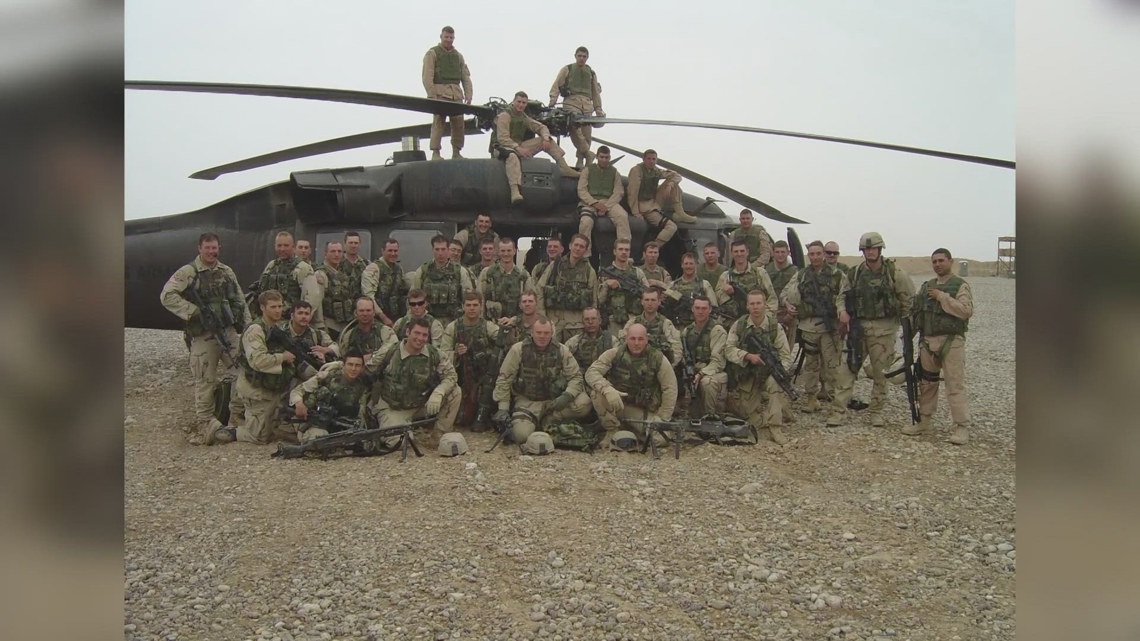
Our cameras arrived in November to embed with Oregon National Guard Troops stationed at a forward operating base in Baghdad. "Camp Volunteer" was established on the site of the old Olympic training grounds for Iraqi athletes. Soldiers noted the contrast of the multi-colored Olympic rings on the walls of a compound also notorious as a torture center for opponents of the Iraqi dictator Saddam Hussein.
“When I got there, we got a mission to train the Iraqis,” said Jerry Glesmann, who was 38 years old during the deployment with the 2nd Battalion, 162nd Infantry, Oregon National Guard. The mission for several hundred troops on that deployment ranged from training a new fighting force of Iraqis to building desks for schools and running security on convoys making dangerous treks along routes notorious for roadside bombs.

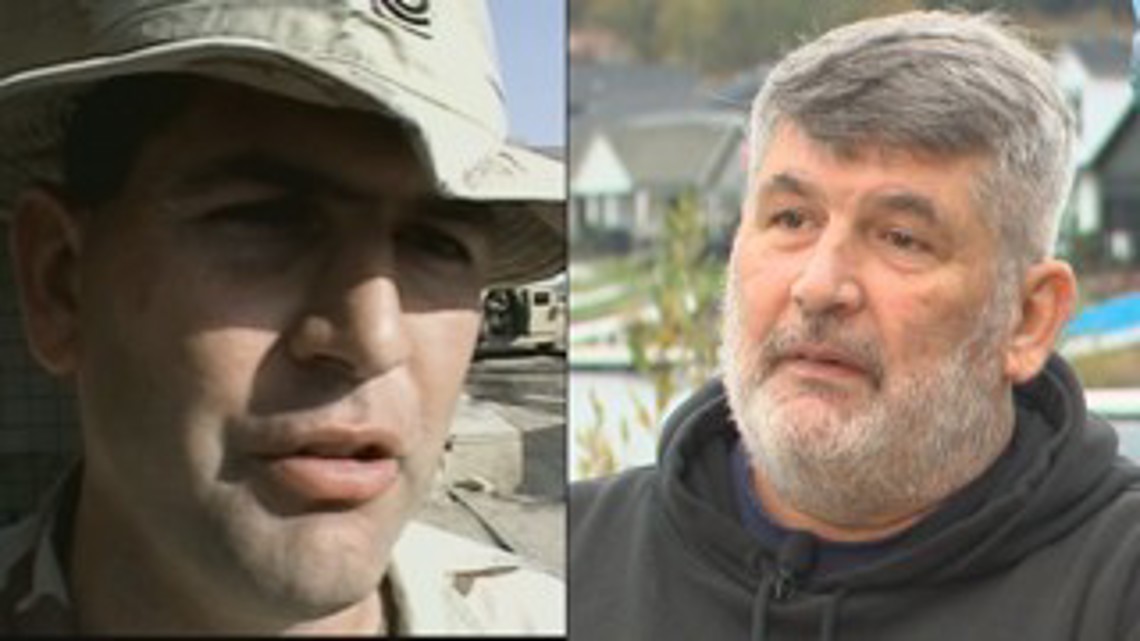
“That was our first combat deployment,” said Glesmann. He would go on to serve in Afghanistan and retire just shy of 29 years in military service. He called the 2004 deployment in Iraq a turning point in his life.
“It changed me, it changed me in a good way. It took me out of my comfortable spot and showed me around the world there’s others that really are in need, and if we can help — that’s great, that’s awesome — I think that’s what we did there in Iraq.”
The 2004 documentary "Oregonians at War" recounts an embed that lasted almost a week for photographer Scott Williams and reporter John Becker. The pair filed dispatches each day of their stay at Camp Volunteer.
John Becker in Iraq
Brotherhood
“I've got to see what happens at the worst of times, and that's a guy that pulls through,” said 2004 Iraq War veteran Vince Jacques about his brother Ryan who served in the same war, at the same time and in the same place.
Blood brothers Vince and Ryan deployed together to Iraq in 2004 and faced a couple of moments where one thought the other had been killed.
“Not many people know, he could have come home the second time,” said Vince Jacques about his brother Ryan enduring a second battle wound in combat.
“I'm staying here with my men, and I'm bringing them home, and if I live, I'll see you again,” said Jacques about his brother’s admonition from a hospital bed that he would return to the fight and serve the rest of his tour.

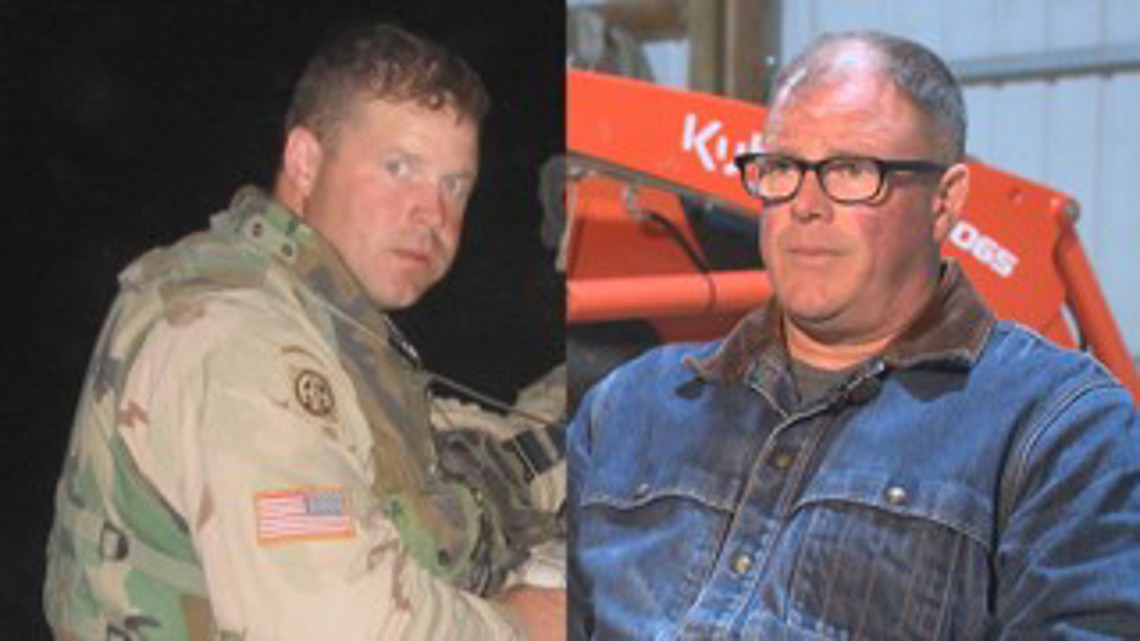
Vince and Ryan made up a handful of blood brothers who deployed together for the Oregon Guard alone.
“The unit I was in was put together to be like a Swiss army knife for the regiment. We were like, whatever needed to be done,” said now Command Sergeant Major James “Dale” Crockett with the Tennesse National Guard. The veteran is now in charge of almost 15,000 soldiers and airmen but was 20 years old when he first deployed to Iraq in 2004. He said a special kind of shared brotherhood for Guard troops formed during that historic call-up in 2004.
“It's, it's a big organization, but it's a small community," he said.

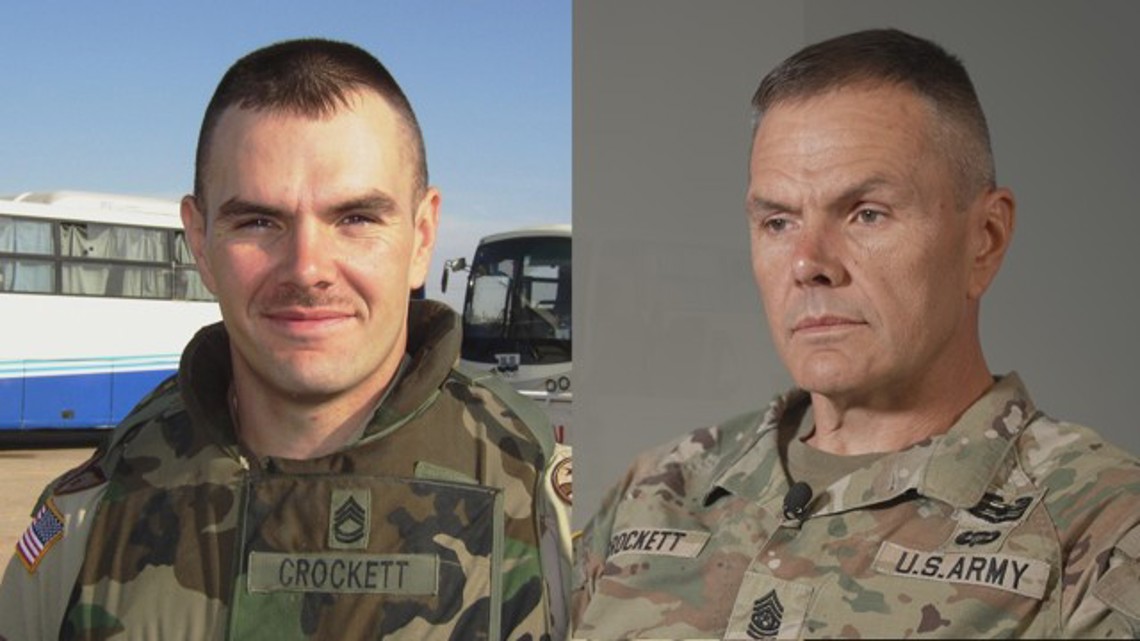
Unexpected losses
“Every time another soldier takes their life, you (think), you know, 'Where did I miss this gap?'” said Chris Thomas, 2004 Iraq War veteran
Veteran suicide is a crisis military veteran Chris Thomas faces in his new job at the Knox County Regional Forensic Center and the last stop for veterans who have taken their own lives before their final salute.
“Probably three dozen at least in the five years I’ve been here,” said Thomas, the center's Chief Administrative Officer. “Five of those are soldiers that I knew and served with."
The Tennessee National Guard veteran has one request from fellow veterans and their families.
“Find other soldiers to talk to, tell them to find me, call me — call anybody. You're not saving anyone from a burden by taking your own life and removing yourself from the picture," he said.

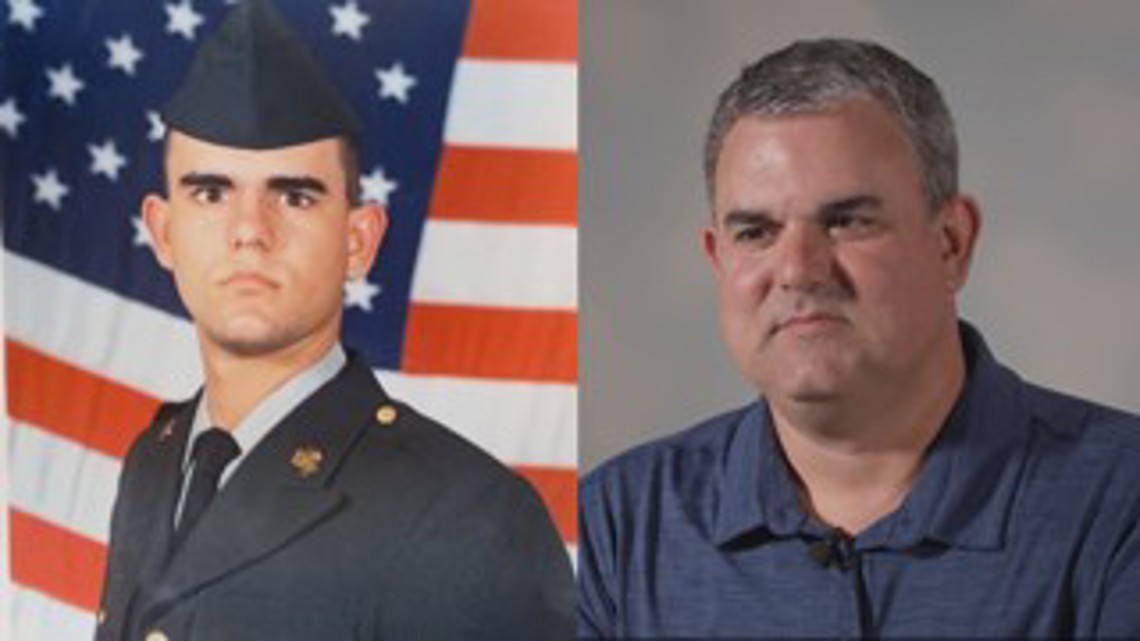
The fallen
“The only thing that I fully remember is (men in uniform) telling us that (dad) was gone. I dropped. I screamed. I went to my room,” said Megan Thomason, who lost her father to a bomb blast in Iraq.
For almost two decades Megan has found ways to hang on to the memory of her father. She has a handful of photos, newly discovered letters he wrote to family during his 2004 deployment to Iraq and a mounted catfish she calls her greatest keepsake. It’s a monster fish that captured the attention of the local newspaper and the envy of fishermen across East Tennessee.
“My fishing buddy, my hunting buddy. I mean, I was attached at the hip from the get-go,” said Megan about her dad Paul, and their adventures before he deployed to war. Megan was 10 years old when her father was killed.
“You don't know family until you have a military family,” said Megan. Soldiers who served with her dad have reached out to her online for years with stories she never knew about her dad. And for the first time in the almost two decades, a soldier who served with Paul met Megan face to face for the first time, welling her eyes with tears.
“I’m so glad you came,” said Megan in a hug that offered one more connection to her dad.

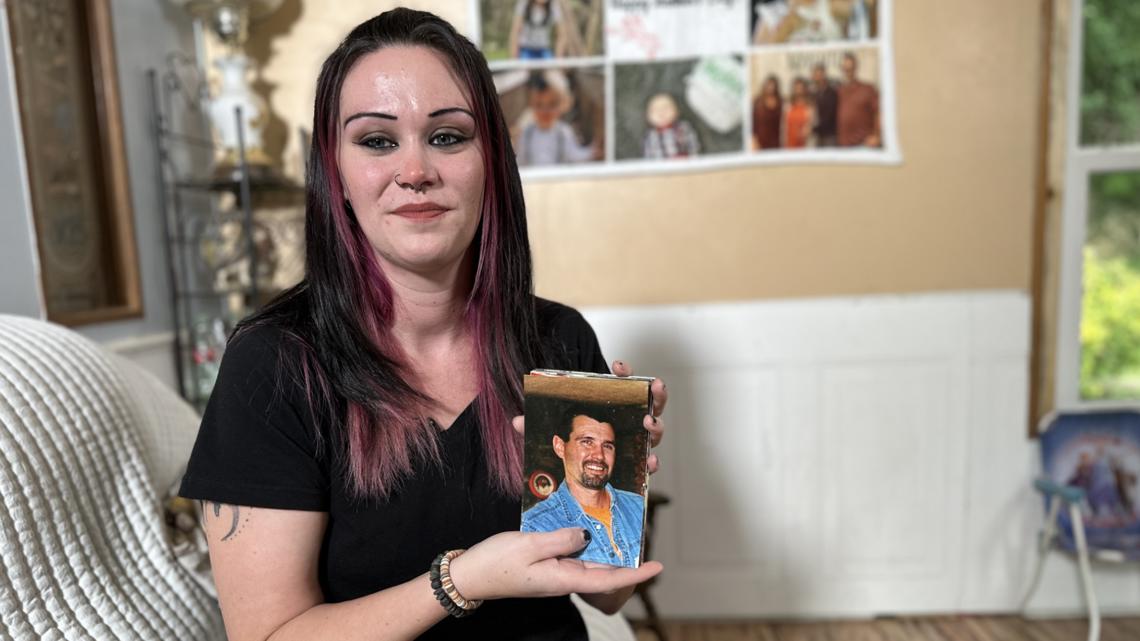
The families
“I can’t believe that it’s been 20 years, because it’s still so close.” said Erin Bagley, Iraq War veteran.
A surprise delivery in Iraq included hand delivering a crayon picture drawn by the toddler son of then Lieutenant Erin Bagley inside a conference room of the forward operating base, Camp Volunteer in Baghdad.
“It’s the most difficult thing in the world to watch my children grow up on videotape — that hurts more than anything I think could happen to me here,” said Bagley in 2004.
The Oregon soldier was among the troops in convoys hit by roadside bombs during the combat deployment. Back home, after his war service, the sound of a blown tire in downtown Portland sent him diving for cover.
“I’m rolling up — seeking cover and I remember laying there as people are watching me, going, this is my life now — I have to be like this,” Bagley said.
His life would include more service overseas.

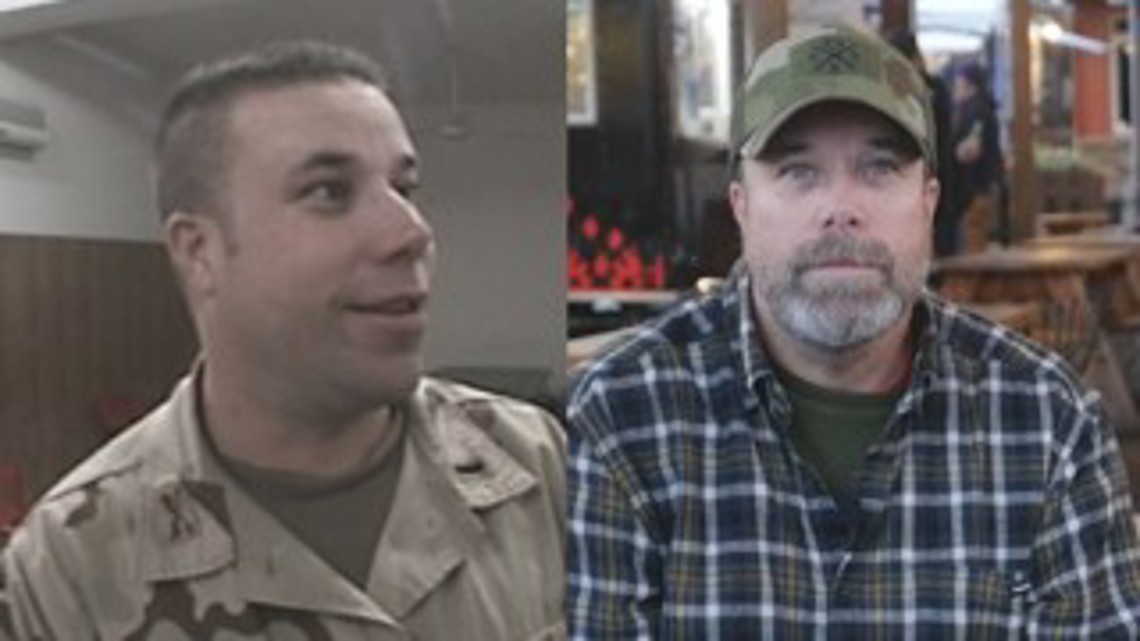
Reflections
“Was it worth it?”
It is the question we put to each soldier we interviewed for the 2024 documentary on their 2004 deployment to the war in Iraq. In addition to their range of responses, this is the following reflection from current leadership within the Oregon National Guard, summing up the experience of their soldiers at war 20 years ago.
“Bravo Company, along with members of Alpha Company, served with distinction while stationed at Camp Volunteer in Baghdad and Camp Taji in the heart of the Sunni Triangle. The battalion saw immense sacrifice during their deployment, with 85 Purple Hearts awarded, including 25 to members of Bravo Company. Tragically, nine soldiers from the battalion were killed in action, with four from Bravo, four from Delta, and one from Headquarters Companies. Among them, seven were lost to improvised explosive devices (IEDs).
The soldiers came from diverse backgrounds, with ages ranging from 17 to 60, including Riley King, a Vietnam War veteran. They held various civilian jobs, from butcher and baker to lawyer and diesel mechanic, yet they set aside their lives to serve. Approximately 20 members were full-time soldiers, and more than 80 were wounded in action.”
You can watch the 2024 documentary "This is War" here. You can purchase the book "The Devil's Sandbox" here.


